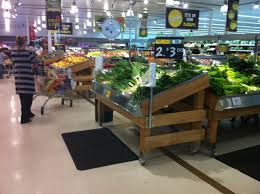 Cheaper energy helped maintain overall U.S. prices close to the same last month, despite a large increase in food costs, the latest sign inflation remains tame.
Cheaper energy helped maintain overall U.S. prices close to the same last month, despite a large increase in food costs, the latest sign inflation remains tame.
The consumer price index was up by just 0.1% during February matching the increase in January, said the Labor Department on Tuesday. Over the past year, prices have increased by only 1.1%, down from the 1.6% for January and the slightest increase in more than five months.
Excluding volatile energy and food categories, core prices were only up 0.1% in February.
Still, U.S. consumers took a hard hit at the supermarket as costs of food were up 0.4%, the most in close to 30 months. Prices of beef were up by 4% during February, which was the biggest jump in over 10 years, as droughts in the west pushed prices for cattle feed up. Milk, cheese as well as other dairy prices rose as well.
A large drop in the yearly inflation rate to 1.1% came as the Federal Reserve begins its once-per month two-day meeting on policy, its first since Janet Yellen took the helm.
Low inflation enabled the Federal Reserve to push for its extraordinary stimulus programs in its effort to boost the growth of the economy.
The Fed now is trying to taper off some of its stimulus. It is purchasing $65 billion worth of bonds in March, which is down from $75 billion for January and $85 billion during last year.
It is expected that another $10 billion will be cut from their purchases on Wednesday.
The slowdown in the annual rate of inflation occurred in part due to an energy price spike in February of 2013 and that figure finally fell from the year over year figure used in calculating the total. Economists as a result do not think that rate will fall much more.
Inflation, due to a tough jobs market and sluggish growth, has been held in check, making it harder for many retailers and other businesses to increase prices.
While shoppers might prefer to have lower prices, economists warn that low inflation can slow down growth in the economy and encourages consumers to put off purchases.
